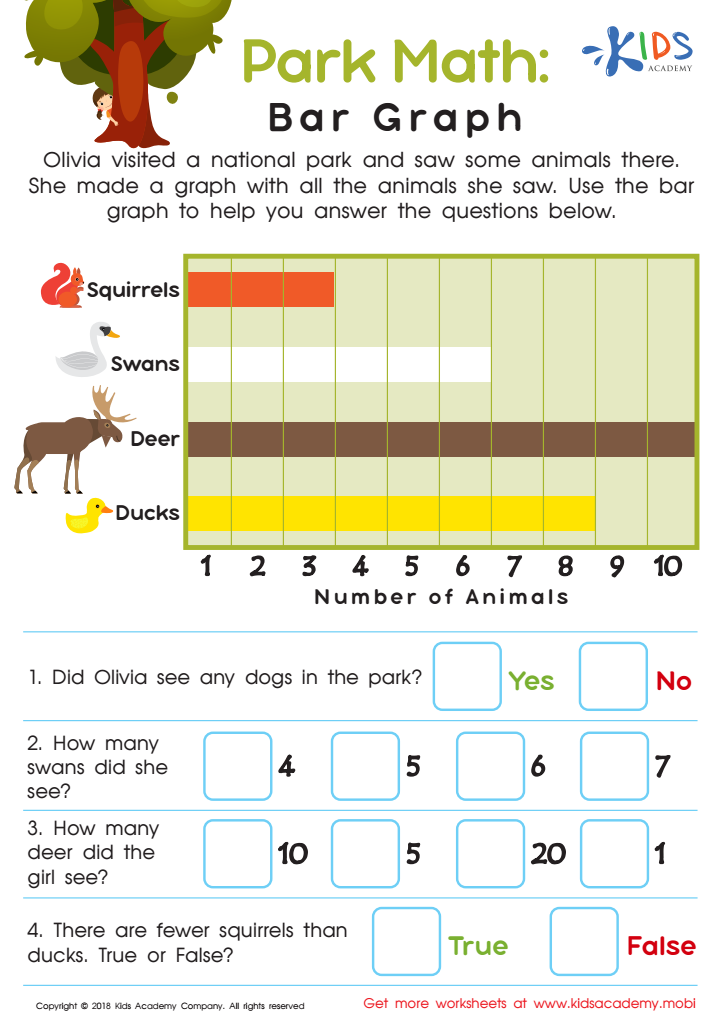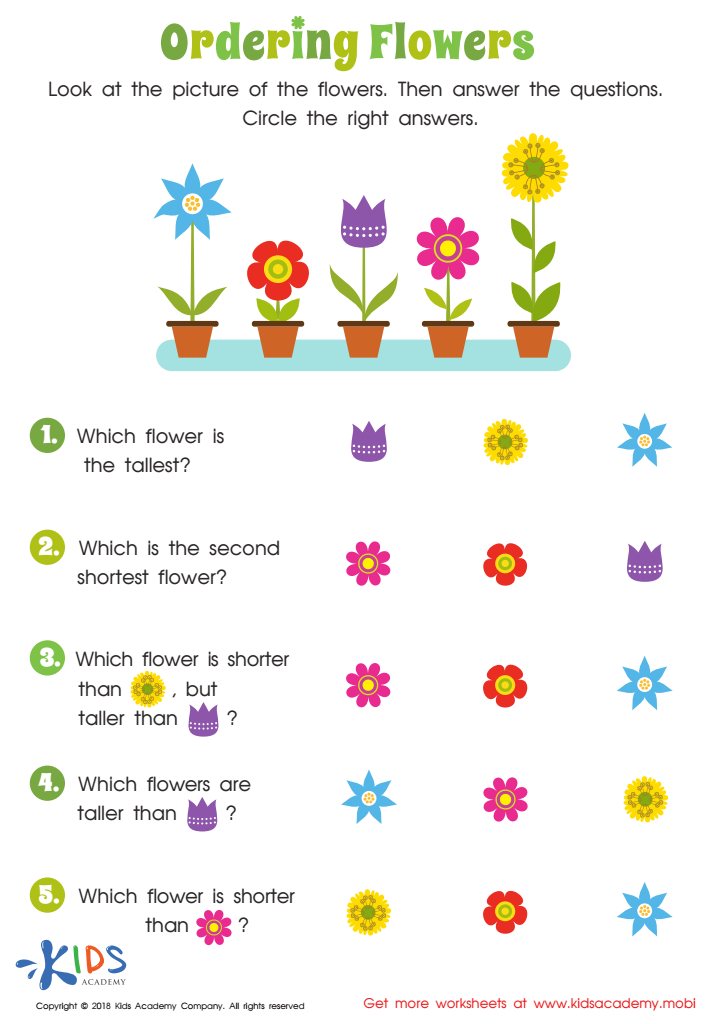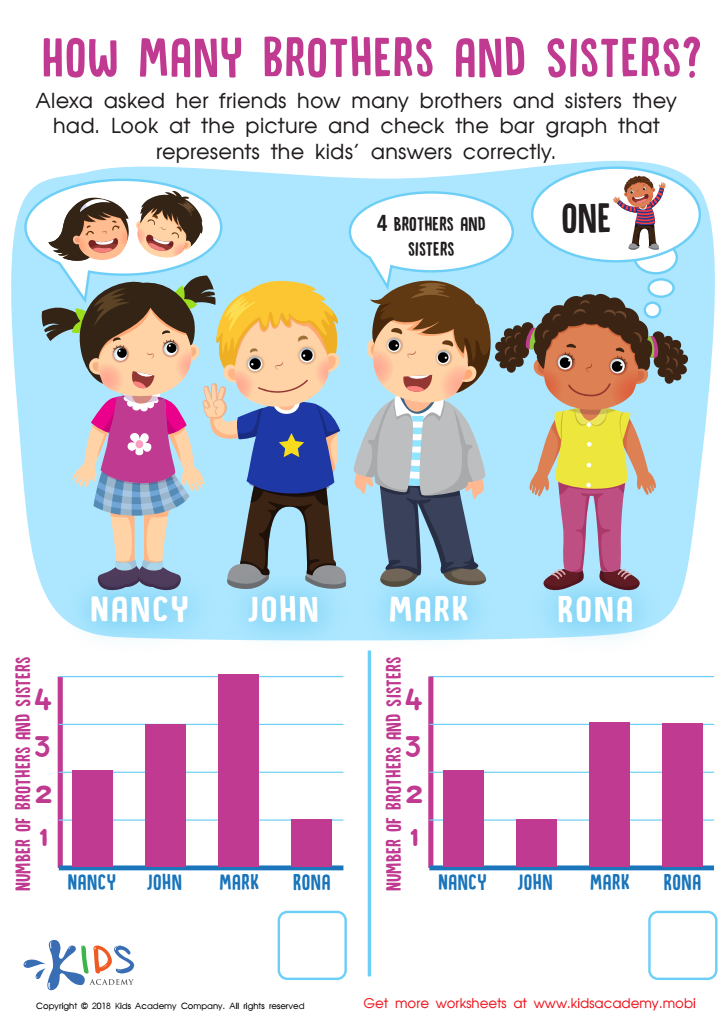Number Recognition Easy Measurement Worksheets for Ages 3-7
3 filtered results
-
From - To
Introduce young learners to the world of numbers with our engaging "Number Recognition Easy Measurement Worksheets" for ages 3-7. These carefully designed worksheets help children develop crucial math skills, combining number recognition with basic measurement concepts. Each worksheet is crafted to be fun and accessible, turning learning into an enjoyable adventure. As kids explore counting, comparing sizes, and identifying numbers, they build a solid foundation for future math success. Perfect for both classroom use and at-home practice, these worksheets support early learners in mastering essential skills while nurturing a love for mathematics. Spark a passion for numbers today!


Park Math: Bar Graph Worksheet


Ordering Flowers Worksheet


How Many Brothers and Sisters? Worksheet
Number recognition and basic measurement skills form the foundation of a child's mathematical understanding, which is why both parents and teachers should give significant attention to these areas, particularly in early childhood (ages 3-7). Developing number recognition at an early age helps children grasp fundamental math concepts such as counting, addition, subtraction, and eventually more complex operations. This foundational skill also aids in developing cognitive abilities such as logical thinking, pattern recognition, and problem-solving.
Introducing easy measurement concepts alongside number recognition can also enhance a child's understanding of the world around them. Simple measuring activities—like comparing heights, weights, or experiencing concepts of length and volume—help children relate numbers to real-world objects and scenarios. These activities encourage hands-on learning and make abstract concepts more concrete and understandable.
Moreover, confidence in math during these formative years boosts overall academic self-esteem and can reduce anxiety related to math in the future. When children achieve competence in early math skills, they are often better prepared for the structured learning environments of formal schooling. Engaging in fun and interactive number and measurement activities also nurtures curiosity and fosters a lifelong love for learning. Thus, attention to these skills early on sets the stage for academic success and essential life skills.
 Assign to My Students
Assign to My Students

















